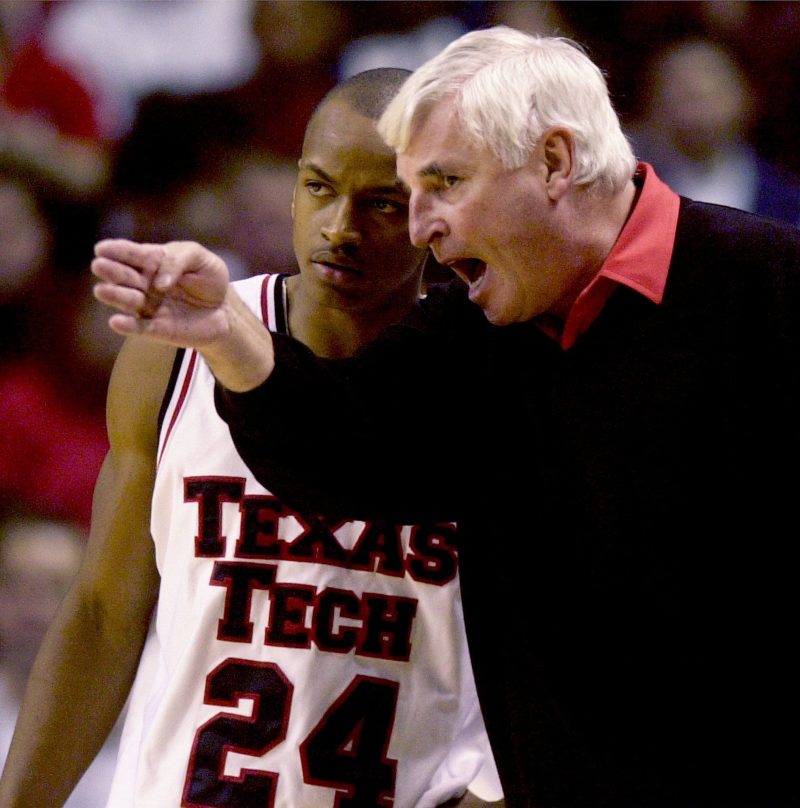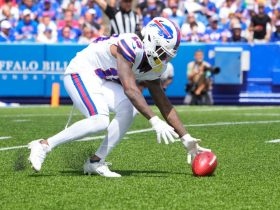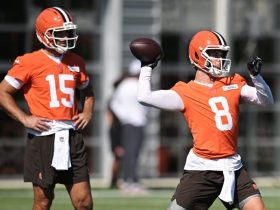On Sunday, March 3, 2002, I was sitting by myself at a Chili’s restaurant in the Dallas Love Field airport when Bob Knight decided to invite himself into my booth to join me for a meal.
I didn’t plan this. He had spotted me as he strolled by, walked in and sat across from me as I got ready to eat.
This was near the end of Knight’s first season as basketball coach at Texas Tech after a legendary run at Indiana. His team had just beaten Baylor the day before in Waco. And I was the young beat reporter who covered him and his team every day for the Lubbock Avalanche-Journal, the daily newspaper where Tech is based.
We had an interesting conversation that day but avoided basketball talk and discussed restaurants in Lubbock instead.
“It’s hard to (screw) up barbecue,” Knight told me – meaning all barbecue there was pretty good barbecue.
We both then flew back to Lubbock, where we would continue a working relationship best described as mercurial on one side (his) and never taking certain behaviors personally on the other (mine).
All of this came flooding back to me Wednesday when I learned Knight had died at age 83.
The news made me sad. It also made me grateful for the two years I got to work with him through April 2003 – a high-profile traveling tour with a rock star-like coach that made me a much better journalist for the experience.
There often was drama
Sometimes, this Hall of Fame coach could be funny and easygoing, like he was that day at Chili’s. Other times, he could be like this:
∎ He excommunicated me from his team twice for the most insignificant perceived slights. This meant he wouldn’t let his players talk to me and wouldn’t answer my questions at news conferences, which made it harder for me to do my job writing stories about his team for local readers.
∎ He called me an idiot on national TV after I asked him about a team vote to not let his star player play in a game at Texas. “None of your (expletive) business,” he snapped at me on Feb. 17, 2003.
∎ He screamed at me once in an empty room as I tried to finish my game story on deadline for the next day’s paper. I don’t even remember what triggered it, just that he badly mispronounced my last name and got so loud that some people in the next room heard it and waited for him to leave before they dared to come in and ask me what happened.
It wasn’t always fun.
But you know what?
I admired him and still cherish my time covering him for two reasons, not including the fact that I consider him the best basketball coach of all time.
One reason was his passion. We all should hope to care about our work as much as he did about his. Passion fuels effort, and effort really mattered to Knight, especially when coaching those great man-to-man defenses of his. When I wasn’t in his doghouse, he allowed me to watch him conduct daily practices, where his love for his craft shone through as one of the game’s most brilliant teachers.
The other big reason was his effect on me. He improved me professionally, even if it wasn’t his intent and it seemed like he was trying to sabotage me instead.
That’s because when he froze me out from his team, I realized I still had a job to do. My editors were not going to let Knight decide who could or couldn’t cover his team for their newspaper just because he didn’t like something I reported. They had my back. So I got more resourceful and became a better reporter. If Knight and his players wouldn’t talk to me, I would find other ways to cover Tech basketball for our readers. That meant reaching out to a wider web of sources – players’ parents, opponents and anybody who knew Knight.
One time, Knight froze me out for the smallest reason
It was Dec. 30, 2001, and he didn’t like that I had included a certain line at the bottom of a short article that related to his tenure at Indiana. The line simply noted he had been fired at Indiana before getting hired at Tech.
But I certainly wasn’t trying to embarrass him. I was just including that line for readers who might not know all the backstory.
It didn’t matter to him. He took it personally. His media handler called that morning and told me, “Coach doesn’t want you around anymore.”
“What do you mean? Why?”
‘You don’t need to keep bringing that up about Indiana,” the media handler said.
The missing chair
Later that day, I showed up at Tech’s game against Minnesota and asked Knight a question in the postgame press conference.
He ignored it, looked around and asked, “Anybody else have a question?”
Around this same time, I also noticed my chair was missing from my assigned space next to the court for games. This led to jokes from colleagues that Knight must have thrown it across the floor in a rage, just like he famously did as Indiana’s coach in 1985.
The truth is, I don’t know what happened to it. I found another chair, covered the game and kept working my job as the team’s beat writer during a freezeout that lasted maybe a few weeks. He had to notice the effort I was making, and he eventually let me back in, even joining me at Chili’s that day a couple of months later.
To this day, I never understood why he held the biggest grudges over the smallest things, not just with me, but with many others over his storied career.
What I do know is I could try to overcome those grudges with sheer effort. And that he admired that. And that I am better because of it 20 years later.
Godspeed, Coach. And thank you. I wish I had gotten the chance to tell you that over a plate of barbecue in Texas.
Follow reporter Brent Schrotenboer @Schrotenboer. Email: bschrotenb@usatoday.com






